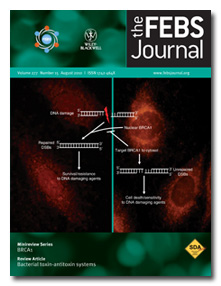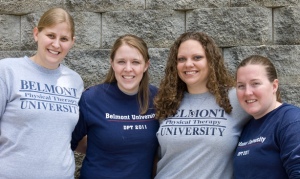 Dr. Kevin Robinson, Professor of Physical Therapy at Belmont, was recently featured in a News Channel 5 story about his research study with Baptist Sports Medicine, identifying risk of injury to student athletes.
Dr. Kevin Robinson, Professor of Physical Therapy at Belmont, was recently featured in a News Channel 5 story about his research study with Baptist Sports Medicine, identifying risk of injury to student athletes.
The story can be found on the News Channel 5 website and the video can be seen below.
“. . . . Kevin Robinson, a Belmont Professor and physical therapist with Baptist Sports Medicine, believes those injuries are far too common.
“We’ve been rehabbing kids for 20 years. We’d like to be on the prevention side now,” said Robinson.
Robinson said new studies show that improved hip and core muscle strength can drastically reduce knee injuries.
Logan Plummer wasn’t sure what to make of the study until the benefits showed up on the soccer pitch.
“I’m able to keep my balance more, and not get knocked off the ball as much,” said Logan.
At the beginning of the study, Logan could barely keep her balance while jumping on one leg. After the training, the improvement is obvious.
“It’s about an eight degree change, which might not sound like much but when you’re talking about forces on the knee that’s significant,” said Robinson.
Robinson said the athletes also showed improved athletic performance in addition to having better stability.
Study organizers got what they hoped for– improved performance and a decreased risk of injury as well as keeping student athletes on the field and playing better in the process.
Baptist Sports Medicine officials hope to expand the study to two local high schools. They eventually hope to create a low cost, effective exercise program that can be used by schools across the mid-state to help prevent major injuries.”

 Dr. Martha Buckner, associate professor and chair of the undergraduate nursing department at Belmont University, has been accepted as a fellow in the Leadership for Academic Nursing program with the American Association of Colleges of Nursing. About 50 leadership fellows are selected each year through a competitive application process from nurse educators in over 640 member schools nationwide.
Dr. Martha Buckner, associate professor and chair of the undergraduate nursing department at Belmont University, has been accepted as a fellow in the Leadership for Academic Nursing program with the American Association of Colleges of Nursing. About 50 leadership fellows are selected each year through a competitive application process from nurse educators in over 640 member schools nationwide.

 Earlier this year four physical therapy students at Belmont wrote a proposal to the Tennessee Physical Therapy Association asking for $990 to fund their research. Lauren Clark, Laura Green, Carrie Rorick and Ashley Vidrine requested this money for their research on the comparative advantages of the Manu Brace versus “a standard wrist split in the treatment of Carpal Tunnel Syndrome”.
Earlier this year four physical therapy students at Belmont wrote a proposal to the Tennessee Physical Therapy Association asking for $990 to fund their research. Lauren Clark, Laura Green, Carrie Rorick and Ashley Vidrine requested this money for their research on the comparative advantages of the Manu Brace versus “a standard wrist split in the treatment of Carpal Tunnel Syndrome”.